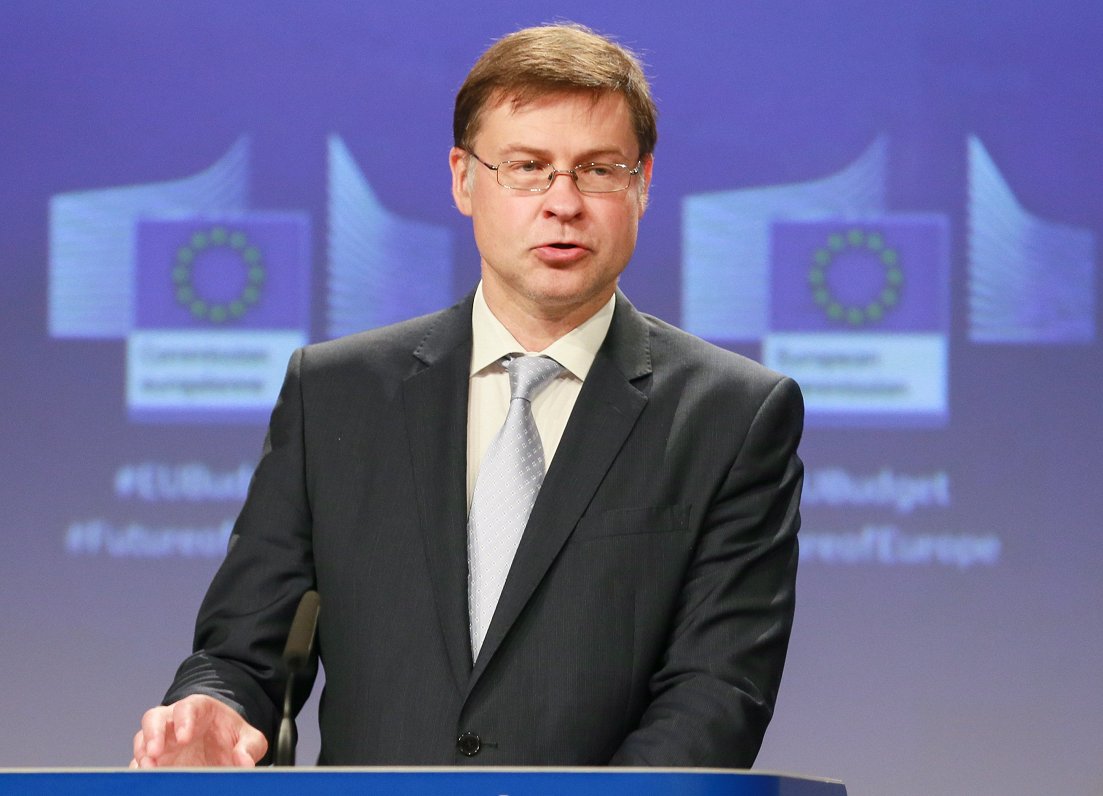In an interview to Latvian Radio July 20 he said that, for the post-Brexit EU budget, there may be increased contributions and cuts for cohesion and agriculture.
EC president Jean-Claude Juncker is visiting Washington next week to try to solve the EU-US trade conflict. How has it affected the economy of the EU?
The effect is negative, which is what we've seen in the newest forecast for European economy. Projected growth was at 2.3% but now it's at 2.1%. Basically, the main reason for the decrease is the trade conflict and the way it affects confidence measures.
Active discussions are taking place all the time, and it's true that... Juncker is visiting Washington next week to meet US president Donald Trump to discuss these matters.
What we stress, from the side of the EU, is the need to approach these conflicts by way of discussion, whilst respecting international norms - WTO norms, in this case - and eschewing unilateral actions, such as the US introduction of tariffs on steel and aluminum. This resulted in the EU introducing tariffs as well, but it's clear it's important that such escalation is prevented in the future.
Experts estimate that these trade wars will cut Latvia's economic growth by 1% of GDP. Is that possible?
Currently Latvia's growth forecast remains at over 3%.
The factors causing a slow-down in Latvian economic growth aren't, for the time being, that related to international trade.
Instead, they are related to local events in Latvia, including problems in non-resident banking and decreasing transit volumes.
Talks have begun over the EU's seven-year budget from 2021. EU is a large economy...but how will it be affected by Britain leaving the bloc? Does it mean countries will have to pay more into the budget?
The UK's leaving the EU causes some problems for the EU's budget, as the UK was one of the largest net contributors. The EC proposal for the next multi-year budget from 2021 to 2027 reflects this fact.
We propose to increase the EU budget share as a proportion from the total EU national income, to 1.11% from the current 1.03%. This means greater contributions from member states. Sadly, we are also reviewing cuts to a number of programs, including to agriculture and cohesion policy. Because, in a way, this Brexit hole gap has to be covered, and at the same time there are a number of new priorities to be funded, including security, protection, migration and other matters.
So this budget proposal was made in quite challenging circumstances, trying to balance all the needs.
And what about Latvia? Currently we receive more than we pay. In what ways could it affect us?
Latvia will continue to be one of the largest net recipients. As concerns agricultural policy, as I've said there'll be a decrease in the EU budget, but direct contributions to the Latvia will continue to grow as we keep on equalizing direct payment levels between member states.
Latvia currently has one of the EU's lowest direct payment rates, and these will continue to grow to approach the median level of the EU.
As concerns cohesion policy, there's a decrease for Latvia. If we talk real prices, the cut is 13% while nominally it remains on the current level. But as I've said, this is in a situation where there cohesion policy is being cut in general.





























